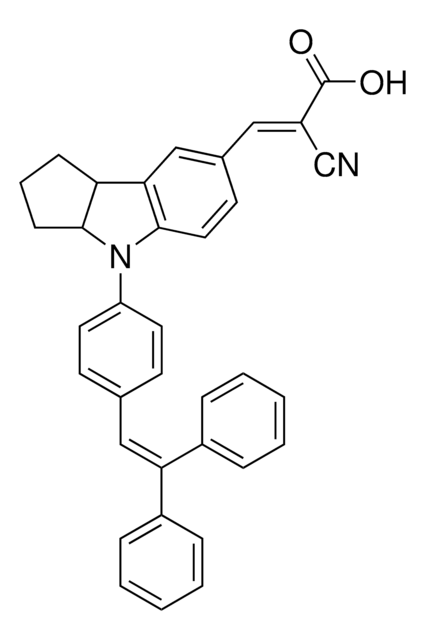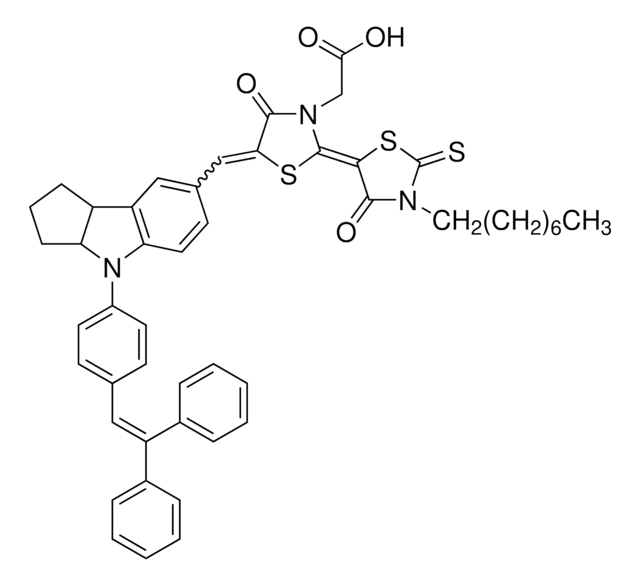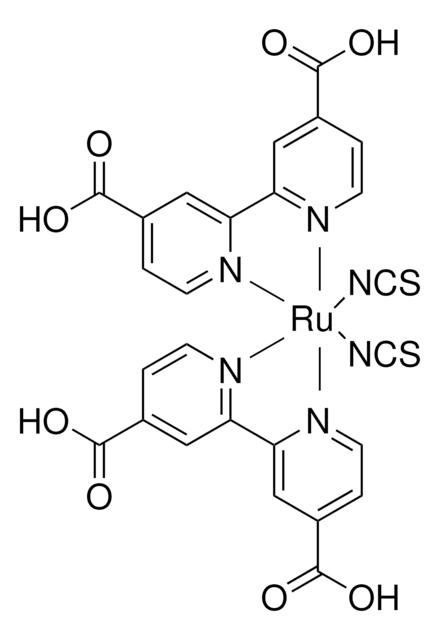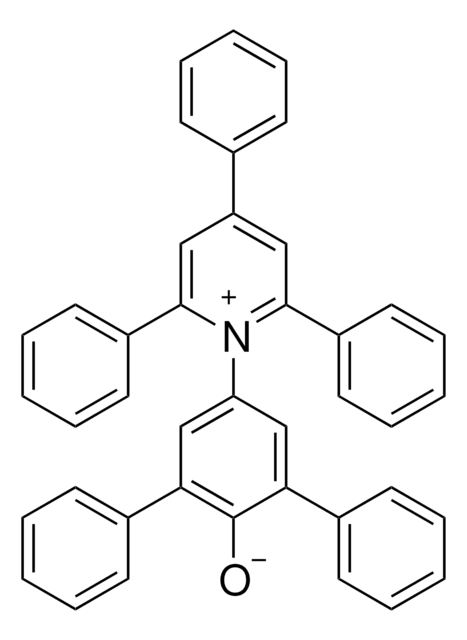About This Item
Recommended Products
Quality Level
Assay
95% (HPLC)
form
powder
mp
238-243 °C
λmax
499 nm in DMF
SMILES string
S=C(S/C1=C\C(C=C2)=CC3=C2N(C4=CC=C(C=C(C5=CC=CC=C5)C6=CC=CC=C6)C=C4)C7C3CCC7)N(CC(O)=O)C1=O
InChI
1S/C37H30N2O3S2/c40-35(41)23-38-36(42)34(44-37(38)43)22-25-16-19-33-31(21-25)29-12-7-13-32(29)39(33)28-17-14-24(15-18-28)20-30(26-8-3-1-4-9-26)27-10-5-2-6-11-27/h1-6,8-11,14-22,29,32H,7,12-13,23H2,(H,40,41)/b34-22-
InChI key
XGMCROHUTRXETK-VQNDASPWSA-N
Related Categories
General description
Application
Cell area: 0.25 cm2 (0.5 cm × 0.5 cm)
TiO2 Thickness: 5 μm
TiO2: screen printing
Electrolyte: 0.1 M LiI; 0.05 M I2; 0.6 M Dimethyl propylimidazolium
Iodide; 0.05 M t-Butylpyridine in 3-Methoxypropionitrile
Light source: AM1.5
Counter Electrode: Pt/Cr spatter glass
Dye adsorption: 30 °C/ in 3 hr. (t-BuOH/acetonitrile soln.)
Legal Information
Choose from one of the most recent versions:
Certificates of Analysis (COA)
Don't see the Right Version?
If you require a particular version, you can look up a specific certificate by the Lot or Batch number.
Already Own This Product?
Find documentation for the products that you have recently purchased in the Document Library.
Customers Also Viewed
Articles
Dye-sensitized solar cells (DSCs) are 3rd generation solar cells combining the promise of high efficiency with low production costs.
While dye sensitization as the basis for color photography has been accepted for a very long time,1 attempts to use this principle for the conversion of solar light to electricity generally had resulted only in very low photocurrents, below 100 nA/cm
Our team of scientists has experience in all areas of research including Life Science, Material Science, Chemical Synthesis, Chromatography, Analytical and many others.
Contact Technical Service











